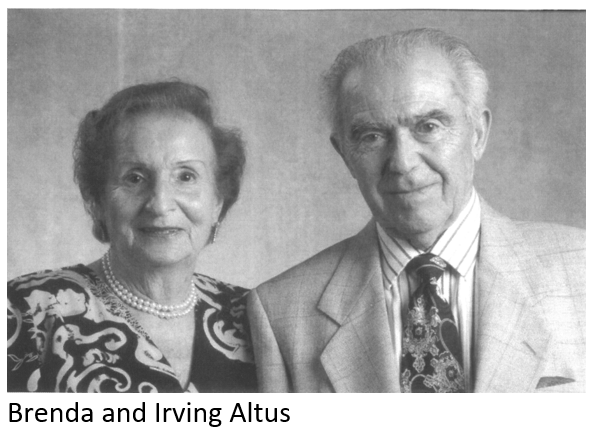Irving Altus
"You have to fight for your fellow man, for your life, for what you believe in. I think now that not fighting was the biggest mistake. I don’t think this could happen again, that we would do the same thing."
Name at birth
Irving Altus
Date of birth
08/15/1920
Where were you born?
Where did you grow up?
Ciechanow, Poland, about 6,000 Jews
Immediate family (names, birth order)
Parents, two older brothers, two younger sisters, and me
How many in entire extended family?
Aunts, uncles, many cousins, and grandparents
Who survived the Holocaust?
Me, two cousins, one aunt, and three uncles, who left before war
To learn more about this survivor, please visit
The Holocaust Memorial Center Oral History Collection
https://www.holocaustcenter.org/visit/library-archive/oral-history-department/index-summaries/
https://www.holocaustcenter.org/visit/library-archive/oral-history-department/index-summaries/
The Voice/Vision Holocaust Survivor Oral History Archive, University of Michigan-Dearborn
Name of Concentration / Labor Camp(s)
Where were you in hiding?
A labor camp in Konigsberg, Auschwitz-Birkenau, a labor camp at a cement factory near Auschwitz, death march to Theresienstadt where I was liberated.
Where did you go after being liberated?
I recovered in Theresienstadt with the help of the Red Cross. After returning briefly to my hometown, I went to the Joint Distribution Center in Prague. From there I went to Munich. I returned to Poland and that is where I met my wife, Bronia Rozmaryn. In 1946, we were married by a rabbi in Munich, Germany.
When did you come to the United States?
I contacted my aunt who sent us papers. My wife, our son Mark, and I moved to Albany, NY in 1949
How is it that you came to Michigan?
A cousin found me a tailoring job in Detroit
Occupation after the war
Tailor. I then worked in pawn shop. I then opened up a cleaning business with a friend. After five years, I opened my own cleaning business in Oak Park. I sold it after ten years and went into property management business.
When and where were you married?
1946 in Munich
Spouse
Brenda Altus,
Homemaker
Children
Four sons: Mark, Sidney, Harvey, and Joey
Grandchildren
Three granddaughters
What do you think helped you to survive?
Luck. I was lucky to survive typhus and to be able to work. While in Auschwitz, I tried to avoid beatings. I had the strength to survive the death march.
What message would you like to leave for future generations?
You have to fight for your fellow man, for your life, for what you believe in. I think now that not fighting was the biggest mistake. I don’t think this could happen again, that we would do the same thing.
Interviewer:
Charles Silow
Interview date:
10/29/2013
Contact us
thank you!
Your application is successfuly submited. We will contact you as soon as possible
thank you!
Your application is successfuly submited. Check your inbox for future updates.

